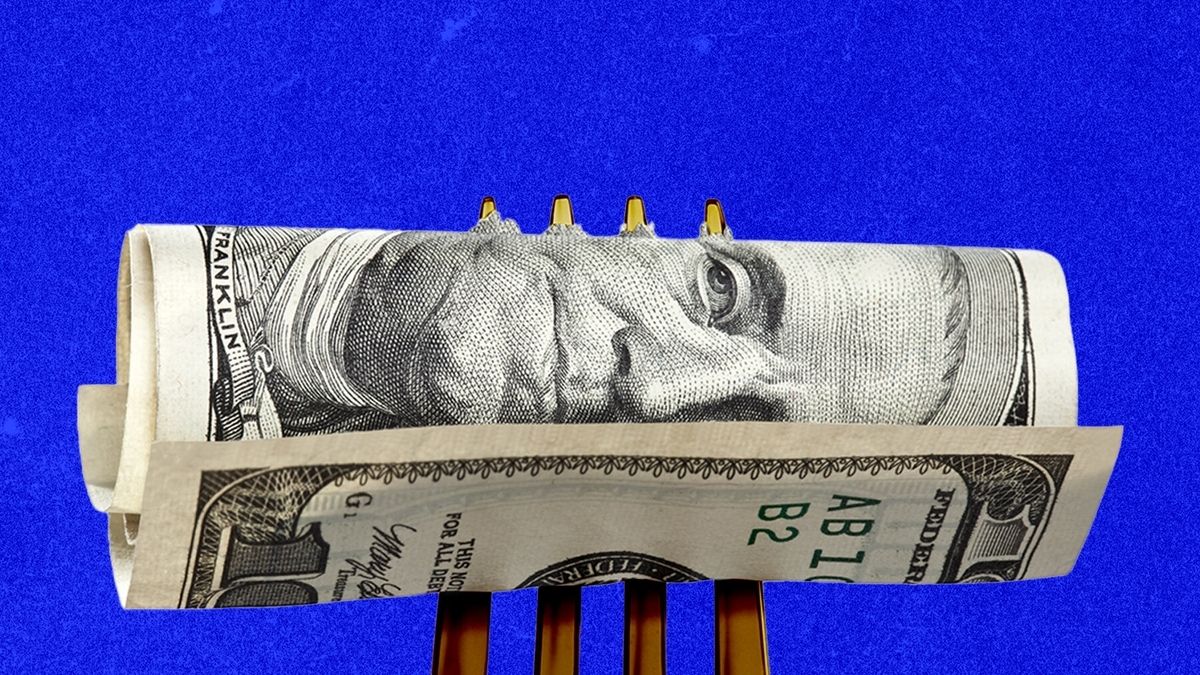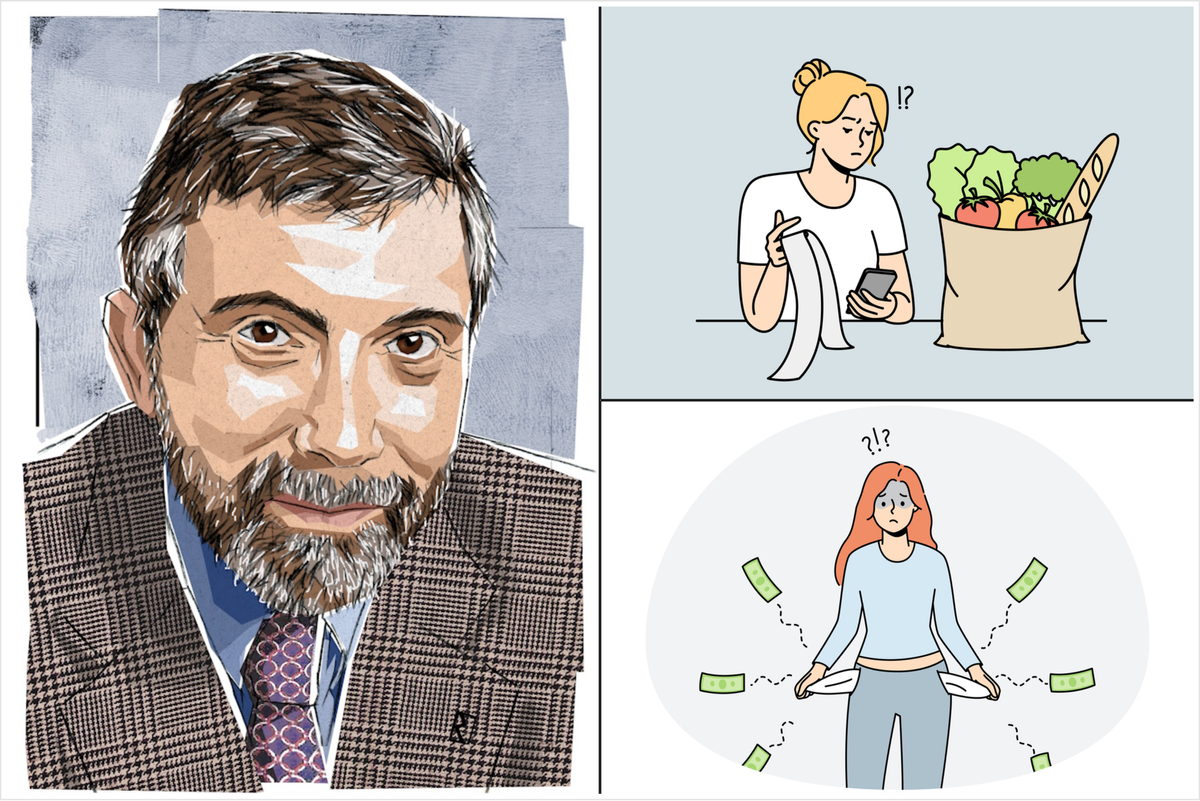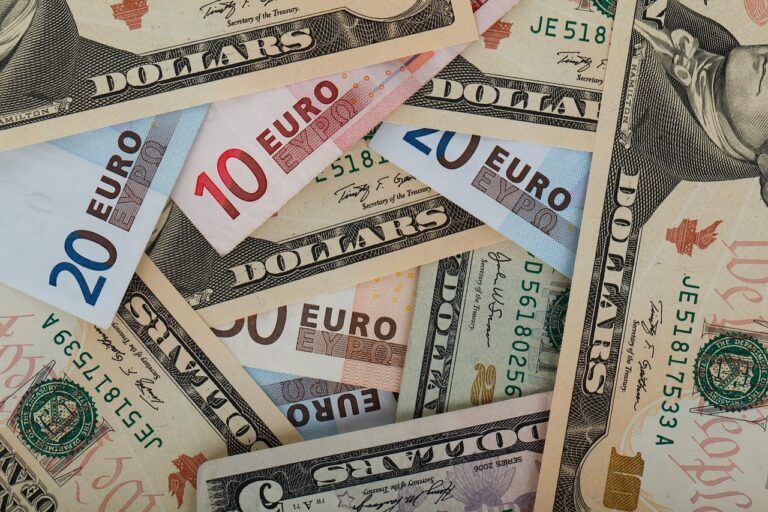




Americans have differing perceptions of the Biden and European economies. While some believe that real wages have grown and the economies are on the right track, others argue that inflation is outpacing income growth and that the American people are not better off under President Biden's term. Additionally, conservative claims about Europe's economic success have been challenged by Nobel laureate economist Paul Krugman, who highlights the benefits of the European approach and debunks myths about mass unemployment in Europe.
The reality is that Americans may have misconceptions about the economies, particularly regarding inflation, job market strength, and the overall performance of the US and European economies. Americans correctly assess the high inflation rates, but they underestimate the strength of the job market and the performance of the US economy compared to other developed nations. Despite the creation of 14 million new jobs under Biden's presidency, Americans perceive job growth as average or weak. Similarly, the unemployment rate has dropped to 3.7%, close to a record low, but Americans believe it is average or high. Americans also underrate the US economy's performance compared to other countries, despite its quick recovery from the COVID-19 downturn [uuid].
Paul Krugman challenges conservative claims about Europe's economy, highlighting the benefits of the European approach such as increased life expectancy and improved public services. He debunks the myth of mass European unemployment, pointing out that employment rates for adults in their prime working years were slightly higher in major European countries than in the U.S. Krugman attributes the perceived economic growth disparity between the U.S. and Europe primarily to demographic differences. He criticizes European policymakers for their conservative approach to economic recovery during the pandemic, focusing too much on inflation and debt at the expense of growth [67ca39c0].
Despite a strong economy, polls show that U.S. adults give the Biden administration low marks on economic management. The article suggests that consumers may be misinformed about the state of the economy and that Biden should do more to educate them. It also discusses the growth of average real wages and the impact of inflation on wage growth. The article argues that increasing nominal wages by raising the minimum wage may conflict with reducing inflation and suggests that helping workers transition to higher-paying jobs could be a better solution. However, this approach comes with challenges, including the need for significant borrowing and the potential for increased structural inflation. The article concludes that addressing the wage gap and improving the economy will require a multi-year effort and coordination between monetary and fiscal policies.
Despite record-breaking inflation, Biden economic adviser Jared Bernstein claims that 'real wages have grown' and that the economy is 'on the right track'. However, critics argue that Bernstein's claims are misleading because he only cited data from the last couple of months, failing to provide a comprehensive view of the situation. While inflation rates have slightly decreased recently, they are still higher than during the Trump administration. Bernstein argues that consumer spending and growth rates are positive, with an unemployment rate below 4 percent for 21 months. He also claims that real wages and disposable income have increased, suggesting that wages are beating prices. However, critics point out that American borrowers are getting closer to maxing out and that delinquencies have increased. Gas prices have also risen significantly, with the average price per gallon reaching $5.06 in June 2022. The article concludes by highlighting the importance of supporting fact-based journalism and thoughtful analysis in the face of cancel culture and political correctness [uuid].
Paul Krugman, a Princeton Economics Professor and New York Times columnist, is accused of ignoring the economic realities in America and painting a rosy picture of the Biden economy. Despite positive economic news, a significant percentage of Americans are still struggling financially, with concerns about inflation, stagnant wages, and high living costs. The article criticizes Krugman for misrepresenting data and failing to engage with regular Americans to understand their struggles. It also highlights the concerns about paying utility bills, mortgage/rent payments, credit card debt, auto loan/lease payments, medical/healthcare costs, financing children's education, and having enough savings for retirement. The quality of life index has dropped, reflecting the struggles caused by inflation and economic conditions. The RCM/TIPP Financial Stress Index shows that Americans are experiencing high levels of financial stress. The article concludes by stating that while unemployment is low, exaggerated claims about the economy for political motives are insensitive and disingenuous [a5773f81].
Paul Krugman analyzes the economy and finds that inflation is decreasing and employment is at record levels. However, Americans have a negative perception of economic conditions due to media coverage and tribal political affiliations. The author argues that focusing on broader indicators like inflation and employment can help address other economic problems. The article also highlights the danger of Republicans gaining control of the government and the influence of the conservative majority on the Supreme Court. Additionally, it emphasizes the need to measure and report on the distribution of GDP growth to address increasing inequality. The author calls for a more robust policy response to ensure broad-based growth and the development of data infrastructure to track inequality over time [e733ea37].
In a recent opinion piece, economist Paul Krugman discusses the impact of income inequality on consumer spending and inflation. Krugman points out that different income groups have different spending habits and therefore care about different prices, leading to different rates of inflation for different groups. He highlights how airports in the US have improved over the years, catering to a wealthier clientele. Krugman suggests that the same affluent class that drives the proliferation of gourmet supermarkets and gentrification in urban neighborhoods is also responsible for the better food and shops in airports. Krugman's analysis underscores the importance of considering income inequality when examining consumer spending patterns and the overall impact on inflation [0316a72f].
Nobel laureate Paul Krugman analyzes the impact of US economic recovery on wage disparities and inflation, highlighting a shift towards economic equity. Despite rising grocery prices, lower-income groups have seen significant wage increases during the Biden recovery period. Wage disparities have decreased, with wages growing faster at the bottom of the income scale. Inflation has had a higher impact on lower-income Americans, but the disparity in inflation rates across income groups is smaller than wage data suggests. Krugman emphasizes the policy implications of income disparities and the potential for a more equitable economic landscape under Biden's recovery. The analysis offers cautious optimism for reducing wage disparities and fostering economic equity. [83444594]